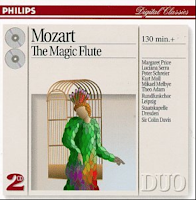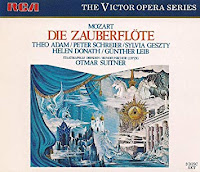I can't help but notice a trend in recent productions of The Magic Flute. Or at least in American productions marketed chiefly for families and newcomers to opera. That trend is to infuse the dialogue with a distinctly irreverent sense of humor. Modern references, pop culture references, cracks in the fourth wall, and generally cheeky jokes that are nowhere to be found in the original libretto. Even in otherwise "traditional" productions, these touches can be found. Usually they involve Papageno, but sometimes other characters too.
Here are some examples from productions I've either seen onstage myself or read about:



































